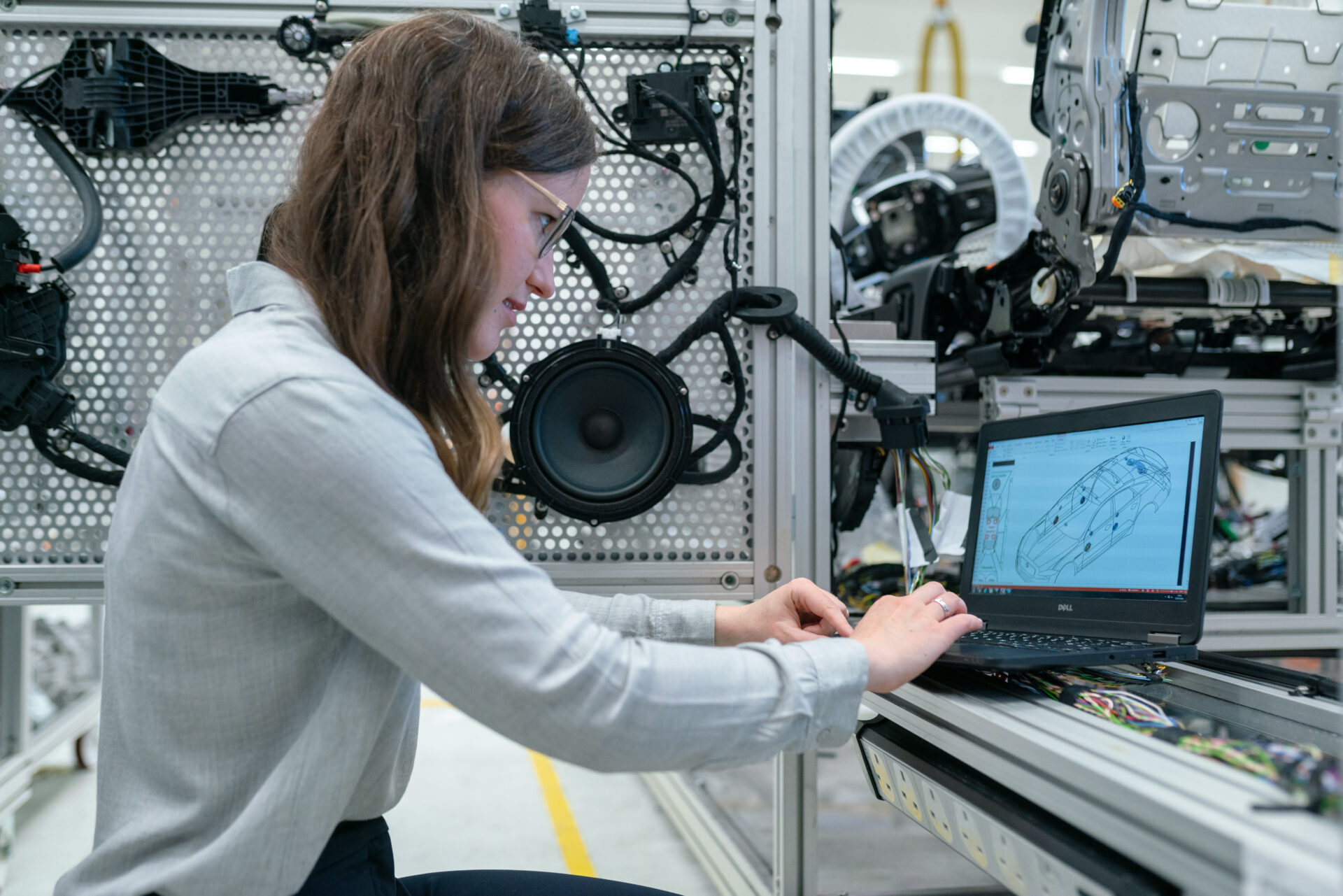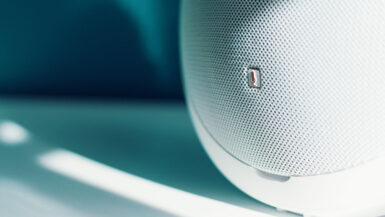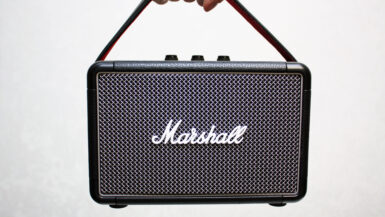In today’s rapidly evolving world of technology, voice assistants are making significant strides in transforming the way we live, work, and communicate. As we strive to create smarter homes and more efficient healthcare systems, it is crucial to explore the potential of voice-enabled devices in improving home healthcare services. This article delves into the core aspects of voice assistants, their integration in home healthcare, and the benefits and challenges that accompany their implementation. Through a comprehensive analysis, we aim to provide our readers with valuable insights, shedding light on the indispensable role that voice-enabled smart home devices can play in revolutionizing the future of home healthcare.
Enhancing Medication Management with Voice Assistants
Medication management is a critical aspect of home healthcare, especially for patients with chronic conditions or those with complex medication regimens. As our population ages, the need for effective and user-friendly tools to support medication adherence becomes increasingly important. Voice assistants, such as Amazon’s Alexa, Google Assistant, and Apple’s Siri, have the potential to revolutionize the way individuals manage their medications, reducing the likelihood of errors and improving adherence. In this section, we will discuss the various ways voice assistants can enhance medication management, making it easier for patients to maintain their health and well-being.
Setting Reminders and Alarms for Medication Intake
One of the primary reasons for non-adherence to medication regimens is forgetfulness. Voice assistants can help combat this by allowing users to set alarms or reminders for medication intake. With simple voice commands, patients can create reminders for specific medications, dosages, and times, ensuring that they stay on track with their treatment plan. Moreover, voice-enabled devices can be programmed to provide additional information or context, such as potential side effects or instructions for taking the medication, further supporting adherence.
Managing Medication Inventory and Refills
Keeping track of medication inventory and refill dates can be challenging, particularly for patients managing multiple prescriptions. Voice assistants can help alleviate this burden by maintaining a record of the user’s medication stock and providing alerts when it’s time to refill. Additionally, some voice-enabled devices can even be integrated with pharmacy services, allowing users to order refills directly through voice commands, streamlining the process and ensuring that medications are always readily available.
Medication Information and Drug Interactions
Understanding the details of one’s medications, including dosages, side effects, and potential drug interactions, is vital for safe and effective medication management. Voice assistants can serve as a valuable resource in this regard by providing instant access to reliable information about various medications. Users can simply ask their voice assistant about specific drugs or interactions, and receive prompt, accurate information to help them make informed decisions about their health.
Adapting to Individual Needs and Preferences
Voice assistants are highly customizable, enabling users to tailor their medication management experience to their specific needs and preferences. Patients with visual or mobility impairments, for example, can benefit from the hands-free, voice-activated nature of these devices, making it easier for them to manage their medications independently. Additionally, voice assistants can be programmed to accommodate unique schedules, routines, and preferences, ensuring that each user’s medication management experience is tailored to their individual circumstances.
Overall, voice assistants have the potential to significantly enhance medication management in home healthcare settings. By providing user-friendly tools for setting reminders, managing inventory, accessing information, and adapting to individual needs, these devices can help improve medication adherence, ultimately leading to better health outcomes and greater independence for patients.
Remote Health Monitoring through Voice-Enabled Devices
As the demand for home healthcare services continues to grow, remote health monitoring has emerged as a crucial component of effective care delivery. Voice-enabled devices are paving the way for innovative solutions in this domain, providing users with the ability to track and manage their health from the comfort of their homes. In this section, we will examine the various ways voice assistants can facilitate remote health monitoring, empowering patients and caregivers alike to improve health outcomes and maintain a high quality of life.
Vital Signs and Symptom Tracking
Voice assistants can be integrated with various health monitoring devices, such as blood pressure monitors, heart rate monitors, and thermometers, enabling users to effortlessly track their vital signs. Patients can simply ask their voice-enabled device to take a reading, and the results will be recorded and analyzed. Additionally, voice assistants can help users monitor their symptoms by allowing them to verbally report any changes in their condition, which can then be shared with healthcare providers for further assessment.
Physical Activity and Sleep Monitoring
Maintaining an active lifestyle and getting adequate sleep are essential components of overall health and well-being. Voice assistants can help users track their physical activity levels and sleep patterns, providing valuable insights into their daily habits and routines. By integrating with wearable fitness trackers or smartwatches, voice-enabled devices can deliver real-time updates on steps taken, calories burned, and hours slept, encouraging users to make healthier choices and prioritize self-care.
Diet and Nutrition Management
Proper nutrition is vital for maintaining good health, particularly for those with chronic conditions or special dietary needs. Voice assistants can assist users in managing their diets by providing personalized meal recommendations, tracking daily caloric intake, and offering helpful tips for making healthier food choices. Additionally, voice-enabled devices can be connected to smart scales or other nutrition tracking tools, ensuring that users receive accurate and up-to-date information about their dietary habits and progress.
Telehealth Consultations and Support
Voice assistants can serve as a valuable tool in facilitating telehealth consultations, enabling patients to easily connect with healthcare providers for remote assessments, follow-up appointments, and ongoing support. By leveraging voice recognition technology, these devices can transcribe patient-provider conversations, streamlining the process of documenting and sharing medical information. Furthermore, voice-enabled devices can be programmed to provide timely reminders for upcoming appointments or follow-up tasks, ensuring that users stay engaged and proactive in managing their health.
Emotional Well-being and Mental Health Support
In addition to physical health monitoring, voice assistants can play a role in supporting users’ emotional well-being and mental health. These devices can be programmed to offer guided meditation sessions, stress reduction techniques, or mood tracking capabilities, helping users to better understand and manage their emotional state. Moreover, voice assistants can be used to access mental health resources and support services, providing users with a discreet and easily accessible means of seeking help when needed.
The integration of voice assistants in remote health monitoring offers numerous benefits for patients and caregivers alike, from improved symptom tracking and vital sign monitoring to enhanced support for mental health and well-being. By harnessing the power of voice technology, we can create more efficient, user-friendly home healthcare solutions that empower individuals to take control of their health and live fuller, more independent lives.
Voice Assistants: Aiding Elderly Care and Independence
As the global population continues to age, the demand for effective and accessible elderly care solutions is on the rise. Voice assistants have emerged as a promising tool in addressing this need, offering a range of innovative features that can improve the quality of life and promote independence for older adults. In this section, we will delve into the various ways voice-enabled devices can support elderly care, illustrating their potential to revolutionize the way we approach aging and home healthcare.
Enhancing Communication and Social Connection
Loneliness and social isolation are common challenges faced by older adults, which can have a significant impact on their overall well-being. Voice assistants can help alleviate these issues by enabling seniors to easily stay in touch with family and friends through voice-activated phone calls, video chats, and messaging. Additionally, these devices can provide access to a variety of entertainment options, such as audiobooks, podcasts, and music, promoting mental stimulation and engagement.
Supporting Daily Routines and Task Management
Maintaining a structured daily routine is essential for older adults, particularly those with cognitive impairments or memory difficulties. Voice assistants can support seniors in managing their daily tasks by offering customizable reminders and schedules, helping them stay organized and on track with their activities. Furthermore, voice-enabled devices can assist with tasks such as setting timers for cooking, creating shopping lists, or providing step-by-step instructions for various household chores, making it easier for seniors to maintain their independence.
Promoting Safety and Security
Ensuring the safety and security of older adults is a top priority in elderly care, and voice assistants can play a crucial role in this regard. By integrating with various smart home devices, such as security cameras, door locks, and motion sensors, voice-enabled devices can help seniors monitor their surroundings and protect their homes. Moreover, voice assistants can be programmed to detect potential emergencies, such as falls or unusual behavior patterns, and automatically alert caregivers or emergency services when necessary.
Assisting with Health Management and Monitoring
Staying on top of one’s health is particularly important for older adults, as they often face a range of age-related conditions and health concerns. Voice assistants can aid seniors in managing their health by providing medication reminders, tracking vital signs, and offering personalized health tips and recommendations. Furthermore, these devices can facilitate telehealth consultations, allowing seniors to easily connect with healthcare providers for remote assessments and ongoing support.
Encouraging Physical Activity and Mobility
Maintaining physical activity and mobility is essential for the overall health and well-being of older adults. Voice assistants can encourage seniors to stay active by offering guided exercise routines, daily activity challenges, or gentle reminders to move throughout the day. Additionally, voice-enabled devices can provide valuable information on local community events, classes, or resources that promote physical activity, ensuring that seniors have ample opportunities to engage in a healthy and active lifestyle.
As we continue to explore the potential of voice assistants in home healthcare, it becomes evident that these devices have much to offer in terms of elderly care and independence. Through enhanced communication, daily routine support, safety monitoring, health management, and physical activity encouragement, voice-enabled devices can significantly improve the quality of life for older adults, allowing them to age in place with dignity and autonomy.
Improving Mental Health with Voice-Controlled Home Devices
Mental health is a critical aspect of overall well-being, and as technology continues to advance, voice assistants are emerging as valuable tools in supporting and enhancing mental health care. In this section, we will explore how voice-controlled home devices can contribute to improving mental health, offering users innovative solutions to help manage their emotions, alleviate stress, and promote resilience.
Personalized Stress Management and Relaxation Techniques
Stress is an inevitable part of life, but effectively managing it is essential for maintaining good mental health. Voice assistants can provide users with personalized stress management tools and relaxation techniques, such as guided meditation, deep breathing exercises, and progressive muscle relaxation. By simply asking their voice-enabled device for help, users can access a wealth of resources tailored to their specific needs and preferences, making it easier for them to cope with stress and maintain a healthy mental balance.
Mood Tracking and Emotional Self-Awareness
Understanding and acknowledging one’s emotions is a crucial step in fostering emotional well-being. Voice assistants can support users in developing greater self-awareness by offering mood tracking capabilities. Users can verbally report their emotions to their voice-enabled device, which can then analyze patterns and trends over time, providing valuable insights into emotional triggers and coping mechanisms. This information can empower users to take more control over their mental health, allowing them to make informed decisions and implement positive changes.
Access to Mental Health Resources and Support
Seeking help and support is an essential aspect of managing mental health, and voice assistants can make this process more accessible and convenient for users. With a simple voice command, individuals can connect with mental health professionals through teletherapy sessions, access self-help resources, or find local support groups and services. By providing a discreet and easily accessible means of seeking help, voice assistants can help break down barriers and encourage more people to prioritize their mental health.
Creating a Calming and Supportive Environment
The environment in which we live can have a significant impact on our mental health. Voice-controlled home devices can contribute to creating a calming and supportive atmosphere by allowing users to customize their surroundings to suit their preferences. For example, users can adjust their lighting, temperature, or background music through voice commands, creating an ambiance that promotes relaxation and comfort. Additionally, voice assistants can be programmed to offer positive affirmations or motivational quotes, providing users with an uplifting boost whenever needed.
Encouraging Healthy Habits and Routines
Developing and maintaining healthy habits is crucial for sustaining good mental health. Voice assistants can support users in establishing routines that promote mental well-being, such as regular exercise, a balanced diet, and adequate sleep. By offering personalized recommendations and reminders, voice-enabled devices can help users stay on track with their goals and maintain a healthy lifestyle, ultimately contributing to improved mental health over time.
In summary, voice-controlled home devices hold significant potential in enhancing mental health care, offering users a range of innovative solutions to manage stress, develop self-awareness, access support, create a nurturing environment, and establish healthy routines. By harnessing the power of voice technology, we can continue to advance home healthcare, empowering individuals to prioritize and maintain their mental well-being more effectively than ever before.
Accessible Healthcare: Voice Assistants as Communication Aids
The growing prevalence of voice assistants in home healthcare has opened up new avenues for accessible healthcare, particularly for individuals with communication challenges. In this section, we will explore how voice-enabled devices can function as communication aids, making healthcare services more inclusive and user-friendly for patients with varying abilities.
Assisting Individuals with Speech Impairments
For patients with speech impairments, such as those resulting from stroke, neurological disorders, or developmental disabilities, communication can be a significant challenge. Voice assistants can be integrated with specialized speech-generating applications, allowing users to express their needs and preferences through alternative means. These devices can be customized to accommodate the user’s unique communication style, enabling them to engage more effectively with healthcare providers and caregivers, and ultimately, improve their healthcare experience.
Supporting Nonverbal Communication
Voice assistants can also support individuals who rely on nonverbal communication, such as those with autism, cerebral palsy, or severe hearing impairments. By integrating with augmentative and alternative communication (AAC) systems, voice-enabled devices can enable nonverbal users to convey their thoughts and needs using visual or tactile cues, which can then be translated into speech. This provides a convenient and accessible means of communication, allowing users to participate more fully in their healthcare journey and advocate for their own needs.
Facilitating Communication for Individuals with Cognitive Impairments
Cognitive impairments, such as those resulting from dementia or traumatic brain injury, can significantly impact a person’s ability to communicate effectively. Voice assistants can help support these individuals by offering prompts, reminders, or simplified instructions, making it easier for them to understand and follow their treatment plan. Additionally, voice-enabled devices can provide a reliable means of communication between patients and caregivers, ensuring that both parties have access to accurate and up-to-date information about the patient’s condition and needs.
Breaking Language Barriers in Healthcare
Language barriers can pose significant challenges in healthcare settings, as effective communication is critical for accurate diagnosis, treatment, and overall care. Voice assistants equipped with language translation capabilities can help bridge this gap, allowing patients and healthcare providers to communicate more effectively, regardless of their native language. This can lead to better patient-provider relationships, improved cultural competency, and ultimately, more equitable healthcare services.
Empowering Patients with Visual Impairments
For individuals with visual impairments, voice assistants can serve as a valuable tool in accessing healthcare information and resources. These devices can provide audio-based guidance, such as medication instructions, appointment reminders, or symptom management tips, allowing users to easily access the information they need without relying on visual cues. Furthermore, voice assistants can connect users with a wide range of accessible healthcare resources, such as audiobooks, podcasts, or support groups, promoting independence and self-sufficiency.
The integration of voice assistants as communication aids in home healthcare has the potential to significantly enhance the accessibility and inclusivity of healthcare services. By addressing the unique communication needs of individuals with speech impairments, nonverbal users, cognitive impairments, language barriers, and visual impairments, voice-enabled devices can contribute to a more equitable healthcare landscape, ensuring that all patients have the opportunity to fully participate in their care and achieve optimal health outcomes.





Leave a reply